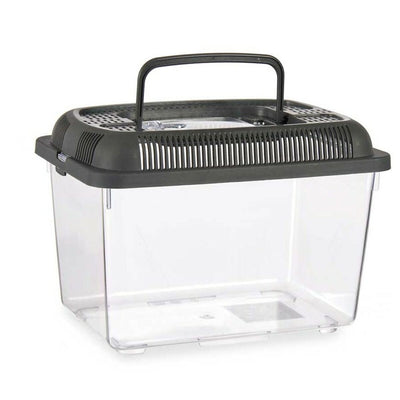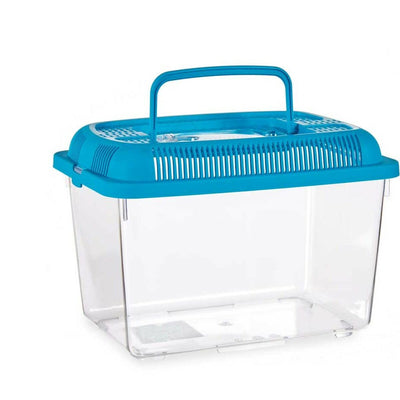
Aquariums, fish tanks and stands
Dive into the World of Aquariums and Fish Tanks: A Comprehensive Guide for Animal Lovers
For water sports enthusiasts, the fascination of aquariums and fish tanks is undeniable. Whether you're an experienced hobbyist or a newbie, creating a thriving underwater ecosystem is an exciting journey. In this guide, we'll cover the basics of choosing the right aquarium, maintaining a healthy environment for your fish, and answering common questions that come up when setting up your aquatic paradise.
Choosing the perfect aquarium
The size is important
Choosing the right size for your aquarium is crucial. Larger tanks provide more stability in terms of water parameters and offer your fish enough space to swim. However, beginners may find it easier to start with a smaller tank (20-30 gallons) to improve their skills before moving on to more extensive setups.
Tank shape and design
Aquariums come in different shapes – rectangular, bow-fronted, cylindrical and more. When choosing your tank design, consider both aesthetics and functionality. For example, tanks with a bow front offer a panoramic view, while cylindrical tanks can create a stylish eye-catcher.
Material matters
Aquariums are typically made of glass or acrylic. Glass is scratch-resistant but heavier, while acrylic is lightweight and offers a clearer view. Choose the material that suits your preferences and maintenance options.
Freshwater vs. saltwater
Decide whether you want a freshwater or saltwater tank. Freshwater aquariums are generally more beginner-friendly, while saltwater aquariums offer a stunning variety of colorful fish and corals but require more expertise.
Setting up your aquarium
Once you have chosen your ideal aquarium/fish tank, it is time to set it up. Take the following factors into account:
- Location
Place your aquarium in a stable location that is protected from direct sunlight and drafts. Make sure the stand is level and can support the weight of the tank, substrate and decorations.
- Filtration systems
Invest in a reliable filtration system to keep the water clean and clear. Depending on the tank size and occupant, choose from options such as power filters, canister filters or sponge filters.
- Substrate and decorations
Choose a suitable surface such as gravel or sand and decorate it with plants, stones and driftwood. These elements create a natural habitat and provide hiding places for fish.
Caring for your aquarium
To ensure that your fish tank/aquarium serves you for a long time and that your fish in it stay healthy, you need to devote time, patience and some resources to its maintenance. And of course take the following aspects into account:
- Water quality
Regularly test water parameters such as pH, ammonia, nitrite and nitrate. Maintain proper levels by changing water and using water conditioners to neutralize harmful substances.
- Feeding routine
Feed your fish a balanced diet and avoid overfeeding to prevent water contamination. Research the specific nutritional needs of your fish species for optimal health.
- Cleaning and maintenance
Perform routine cleaning by vacuuming dirt from the surface, scrubbing algae from the glass, and changing some of the water regularly. Keep equipment such as filters and heaters in good working order.
FAQs
How often should I clean my aquarium?
Regular cleaning is essential. Do a partial water change every 2-4 weeks and clean the surface and decorations as needed.
Can I mix different species of fish in the same tank?
Research compatibility to avoid aggression or stress. Some species have specific requirements that may not match.
What size tank is suitable for a beginner?
A 20-30 gallon tank is ideal for beginners, providing a manageable size for learning while maintaining stability.
How do I install a new aquarium?
Cycling creates beneficial bacteria that break down waste. Add ammonia to boost the cycle and monitor levels until ammonia and nitrite levels drop to zero.
Should I use live or artificial plants?
Both options have their advantages. Live plants contribute to water quality, while artificial plants require less maintenance. Choose based on your preferences and expertise.
Can I keep marine fish in a freshwater tank?
No, marine fish require a saltwater environment. Trying to keep them in fresh water can cause health problems and stress.
How do I deal with algae growth in my aquarium?
Control lighting duration, perform regular water changes, and ensure proper nutrient balance to prevent excessive algae growth.
What equipment do I need for the basic setup of an aquarium?
The basic equipment includes a tank, a filter, a heater, lighting, substrate, decorations, a water conditioner and a test kit. You can find all of this at All4Pets!



